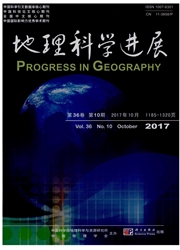

 中文摘要:
中文摘要:
乡村旅游是以农业为基础,以旅游为目的,以服务为手段,以城市居民为目标,第一产业和第三产业相结合的新型产业。乡村旅游可以合理开发城市边缘区景观生态资源,发展城郊生态旅游,实现城市和乡村优势互补、协调发展。乡村旅游在中国先后经历了早期兴起阶段、初期发展阶段和规范经营阶段,从最初的资源特色主导、农业产业主导和政府扶持主导过渡到了现今的市场主导。本文基于乡村旅游的产生背景和概念特征,对中国乡村旅游的发展进行了全面论述,分析了乡村旅游的发展现状和主要模式,并针对当前存在的主要问题提出了相应的发展对策,最后对乡村旅游的发展前景进行了展望,以期能用以指导未来中国乡村旅游的可持续发展。
 英文摘要:
英文摘要:
Rural tourism is such a new industry which combines primary industry with tertiary industry.Rural tourism is based on agriculture,aiming at developing tourism in rural area and serving the urban residents by providing various services.Rural tourism can develop landscape resources in rurban fringe to promote eco-tourism and to realize the coordinated development of the cities and countryside.In China,rural tourism successively experiences three stages,eg.early rising stage,initial development stage and later normative operating stage.This paper,based on the background and the concept of rural tourism,comprehensively discusses the development of rural tourism in China,analyzes the current situations and the main patterns of rural tourism,and puts forward some relevant countermeasures for the current problems.Finally,the paper discusses the prospect of the future sustainable development of rural tourism in China.
 同期刊论文项目
同期刊论文项目
 同项目期刊论文
同项目期刊论文
 General multidimensional cloud model and its application on spatial clustering in Zhanjiang, Guangdo
General multidimensional cloud model and its application on spatial clustering in Zhanjiang, Guangdo 期刊信息
期刊信息
